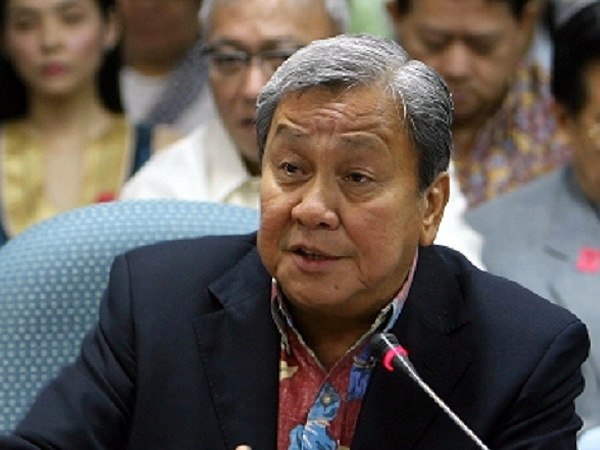THE “almost identical sets of candidates” on the senatorial lineups of major political groups in 2016 is bad for Philippine democracy, according to a senatorial candidate running under Vice President Jejomar Binay’s United Nationalist Alliance (UNA).
An electoral system that allows so many “common candidates” is giving the citizenry too few choices in the elections, said Buhay party-list representative and former Manila Mayor Lito Atienza.
“What we’re witnessing now is the genuine, real distortion of the electoral process,” he said in a statement.
Atienza, who is for the return of the two-party system, called for electoral reforms to fix the “current setup of having several political parties with almost identical sets of candidates,” which he said “will only further weaken our democracy.
“The citizenry is not given any choice… Now many senatorial candidates of one party are also candidates of other parties. There’s an urgent need for reforms and a return to a sane system of elections,” he said.
The camps of Binay, former Interior Secretary Mar Roxas, and Grace Poe are fielding a number of common candidates on their senatorial slates.
Former Sen. Panfilo Lacson is a guest candidate of both the Liberal Party-led (LP) Team Daang Matuwid and Binay’s UNA. Sen. Ralph Recto is a common candidate of the LP and Poe’s Partido Galing at Puso, or Team GP.
Sen. Vicente Sotto III, former Sen. Richard Gordon, migrant workers advocate Susan Ople, and former Bukidnon Cong. Juan Miguel Zubiri, are in the lineup of both UNA and Team GP.
Manila Vice Mayor Isko Moreno, who is on Team GP, has also gotten the endorsement of the presidential team-up of Senators Miriam Defensor-Santiago and Ferdinand Marcos Jr.
Leyte Rep. Ferdinand Martin Romualdez, an independent who is on the UNA slate, has also received the endorsement of Defensor-Santiago.
Atienza said this situation necessitated the return of the two-party system.
The Philippines was governed by a two-party system from the end of World War II in 1945 until the dictator Ferdinand Marcos imposed martial law in 1972. It gave way to the multi-party system upon the restoration of democracy in 1986.
“We need to restore the two-party system to ensure fair elections,” Atienza said.
He lamented the lack of any “real, organized political parties” in the Philippines.
“There will be no election in many districts because there will only be one candidate running and the people will have no choice at all. Eventually, this political malady will weaken the very foundations of democracy,” he said.
Atienza cited as an example the fact that three candidates for Vice President belonged to one party.
Except for Sen. Francis Escudero, an independent, and Camarines Sur Rep. Leni Robredo of the LP, all the candidates running for Vice President come from the Nacionalista Party, Atienza said, referring to Senators Marcos, Alan Peter Cayetano, and Antonio Trillanes IV.
Atienza said political parties “have practically rendered themselves inutile and meaningless.”
“There is an urgent need to review our electoral processes and the role of political parties in our democracy. This must be done to restore genuine democracy in our country,” Atienza added.
He said he would continue to fight in Congress for the return of the two-party system, as well as the restoration of Section 67 of Batas Pambansa No. 881, or the Omnibus Election Code, which required the resignation of any elected official running for higher office.
“The removal of this section has allowed a reversion to the malpractice of the past where senators who ran for higher office but lost, could conveniently go back to their positions after the elections,” he said.
“This was tailor-made for senators with six-year terms,” Atienza said.
